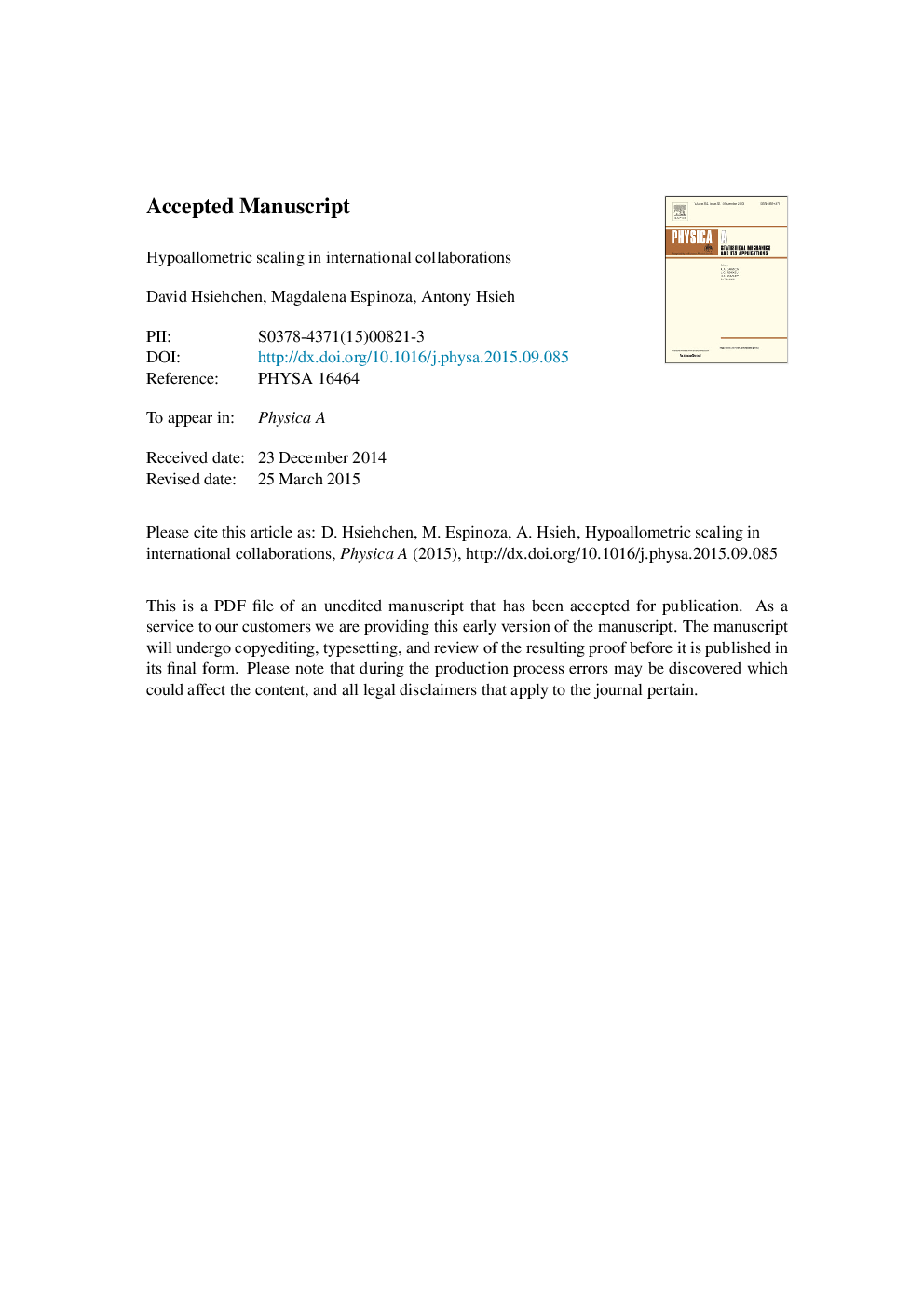| Article ID | Journal | Published Year | Pages | File Type |
|---|---|---|---|---|
| 7379172 | Physica A: Statistical Mechanics and its Applications | 2016 | 16 Pages |
Abstract
Collaboration is a vital process and dominant theme in knowledge production, although the effectiveness of policies directed at promoting multinational research remains ambiguous. We examined approximately 24 million research articles published over four decades and demonstrated that the scaling of international publications to research productivity for each country obeys a universal and conserved sublinear power law. Inefficient mechanisms in transborder team dynamics or organization as well as increasing opportunity costs may contribute to the disproportionate growth of international collaboration rates with increasing productivity among nations. Given the constrained growth of international relationships, our findings advocate a greater emphasis on the qualitative aspects of collaborations, such as with whom partnerships are forged, particularly when assessing research and policy outcomes.
Related Topics
Physical Sciences and Engineering
Mathematics
Mathematical Physics
Authors
David Hsiehchen, Magdalena Espinoza, Antony Hsieh,
